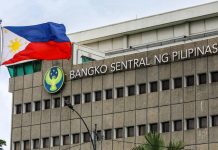MANILA – The government should focus on ensuring adequate food supply as the second tranche of fuel excise taxes in 2019 has yet to make a significant impact on market prices, an economist from the Ateneo Center for Economic Research and Development (ACERTD) said.
In an interview on “Balitanghali,” ACERD director and Ateneo de Manila University (ADMU) economics professor Alvin Ang recalled that basic food items largely contributed to the soaring inflation rate in 2018.
“As of now, critical na ensured na may rice, lahat ng basic necessities, may pagkain – lahat ‘yan available – at ensure na hindi na magkakaroon ng same condition like last year which contributed to the higher inflation more than the TRAIN law itself, na sa tingin po namin hindi po dapat naging gano’n kalaki ‘yung epekto kundi it’s more of the hype siya na ganu’n eh,” Ang said.
He added that certain measures should be taken to avoid unnecessary consumer expectations as they would only cause market prices to soar even higher.
“Wala pa naman tayong nakikita on the ground na malawakang pag-taas ng presyo. We have to anticipate na possible ‘yan, pero tignan muna natin ano ba talagang response ng tao rather than creating unnecessary expectation ng mga tao na tataas lahat,” Ang said.
“Baka naman pababa na nga ‘yung presyo ng food, stable na ‘yung food supply at food prices, tataas na unnecessarily because people are thinking na tataas, so bibili sila ng madami, lalong tataas yung presyo,” he added.
Inflation in September 2018 surged to nine-year high of 6.7 percent.
The Department of Finance had pointed to food inflation as the main propeller, citing supply issues due to weather disturbances. (GMA News)







